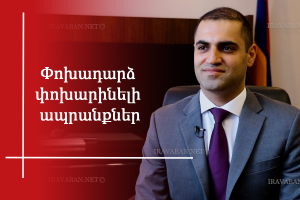According to the Article 321 of the Civil Code;
Power of attorney for concluding transactions requiring notarial form shall be certified by a notary public, except for cases envisaged by law.
The following shall be equated to powers of attorney certified by a notary public:
1. Powers of attorney of military servants and other persons, undergoing medical treatment in hospitals, sanatoriums and other military healthcare institutions — certified by the head of that institution, deputy head of the medical unit, senior physician or the physician on duty;
2. The powers of attorney of military servants, and, in dislocation sites of military units, military formations, military establishments and military educational institutions, where there are no notary offices and other bodies performing notarial actions, also the powers of attorney of workers and service staff, members of their families and members of families of military servants — certified by the commander (head) of such military units, military formations, military establishments and military educational institutions;
3. Powers of attorney of persons in places of imprisonment — certified by the head of the relevant imprisonment facility;
4. Powers of attorney of adult citizens having active legal capacity, staying in institutions for social security of population — certified by the management of such institution or the head (deputy head) of the relevant body responsible for social security of population.
The power of attorney for receiving salary and other payments related to labour relations, remuneration for authors and inventors, pensions, allowances and stipends, citizens’ bank deposits and postal deliveries, including money and parcels, may also be approved by the organisation where the recipient of the power of attorney works or studies, the local self- government body of his or her place of residence and the management of the inpatient healthcare establishment where he or she undergoes treatment.
If you want to participate in the court, then, according to the Article 41 of the RA Civil Procedure Code ,the legal regulation is;
1. The power of attorney issued by a citizen shall be certified by a notary or by an official having such a competence by virtue of law. The power of attorney shall be provided to an advocate in a simple writing form and shall not be subject to certification.
2. A power of attorney on behalf of an organisation shall carry the signature of the head of the executive body thereof or the person authorised, in accordance with the charter, to represent the organisation without a power of attorney, sealed with the stamp (if the organisation wishes so) of the organisation.
3. The party participating in a court sitting together with a representative shall have the right to confirm the competences of his or her representative before the court, stating the scope of competences of the latter in writing
4. The competences of a legal representative shall be confirmed with a document certifying his or her status.















